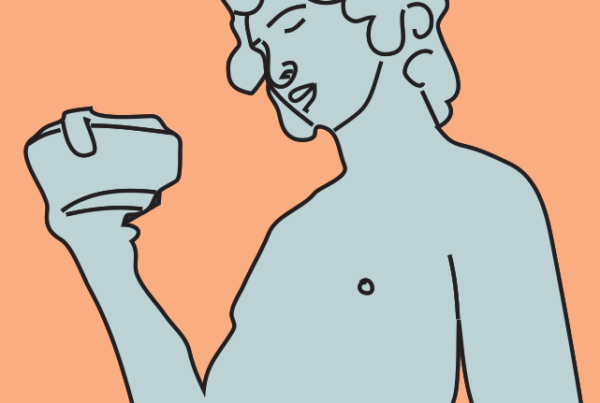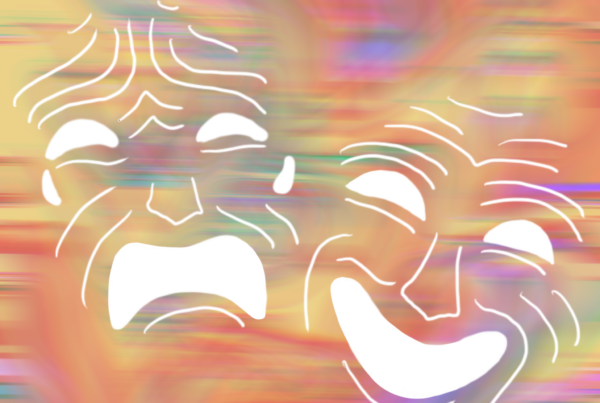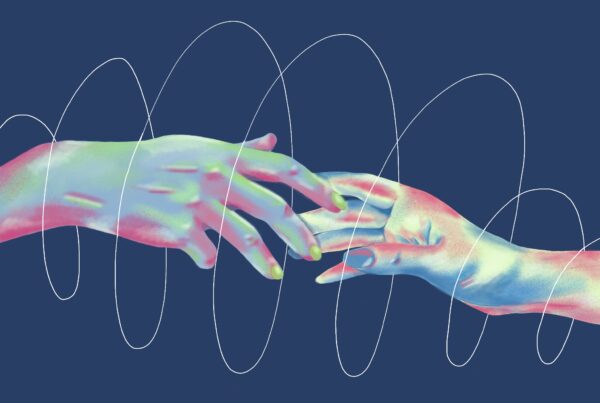
“I was listening, and I could hear that I was being judged intelligent. But I couldn’t quite understand how an ordinary man’s good qualities could become crushing accusations against a guilty man” In his 1942 landmark existentialist novel, Albert Camus portrays the fragility of human life through contrasting a death, murder and death penalty – the process of becoming a stranger to oneself. This article will explore the historical background of the term existential crisis, the novel itself and psychological research on the matter.
“I was listening, and I could hear that I was being judged intelligent. But I couldn’t quite understand how an ordinary man’s good qualities could become crushing accusations against a guilty man” In his 1942 landmark existentialist novel, Albert Camus portrays the fragility of human life through contrasting a death, murder and death penalty – the process of becoming a stranger to oneself. This article will explore the historical background of the term existential crisis, the novel itself and psychological research on the matter.

Photo by Arun Clarke on Unsplash

Photo by Arun Clarke on Unsplash
The key themes of meaninglessness of life, indifference, religion, and chance are explored in detail in Albert Camus’ novel “The Stranger” . The story follows from the funeral of a man’s mother to his final days in prison, providing a perfect setting for the author to ponder about existentialism. This is a form of philosophy that focuses on the meaning of life, freedom, and asking fundamental questions about human life. An existential crisis is a concept in existentialism, defined as a crucial stage or turning point at which an individual is faced with finding meaning and purpose in life and taking responsibility for his or her choices (APA, 2023). Such a state can result in depression, stress, and anxiety, if the individual does not come to a satisfying conclusion by themselves, which would allow them to move on and see life in a new, yet liveable way. This is evident in “The Stranger” as the main character, Meursault, spends many months in prison and despite his initial indifference to this situation, bit by bit he realizes he could have lived and acted differently. Similar works have mainly been written in the 19th and 20th century, from authors including Nietzsche, Kierkegaard, Sartre, Camus, Kafka, and Dostoyevsky. The fixation on death is not surprising, given that the notable works by these authors emerged mainly in the context of a post WWI Europe and the dawn of World War II.
One of the main existential arguments proposed by Camus is how Meursault feels like an outsider looking onto his own fate as the trial and his life’s future path will be decided by others than him. This estrangement from oneself is achieved through Camus using a first person narration, but we do not hear much of Meursault’s actual thoughts or feelings. and only detached descriptions of himself “ I smiled and it still had the same sad, stern expression.”. Furthermore, the actual detailed descriptions are of the outside world and the weather. As we progress through the novel, we come to realize that Meursault may be an unreliable narrator as we can tell that he is lost in what’s happening around him. However, once Meursault is trialed for his crime, the reader gets a new, perhaps more grounded sense of the story. This abrupt transition between subjective and objective defines the existential crisis for me, because it shows the subjectivity of truth and experiences well. Lastly, Meursault’s detachment from his actions and its consequences is especially significant, because the judges interpret this as evidence for him being a cold-blooded killer, illustrated in “I ask you for this man’s head,” he said, “and I do so with a heart at ease.”
“This abrupt transition between subjective and objective defines the existential crisis for me, because it shows the subjectivity of truth and experiences well. ”
Previous research has looked at several types of existential crises and their effects. Another type of existential crisis that has been proposed is existential depression (Berra, 2021), which is defined to be categorically different from Major Depressive Disorder, as it stems rather from the reflections on life than from one’s own environmental, genetic or neurochemical factors. The defining symptom of existential depression is hopelessness and loss of meaning about purpose in life.
The existential crisis might be about investigating a new perspective and trying to choose one that one finds most meaningful.Thinking about these might be outside of most people’s comfort zones, as they have followed one for a long time and don’t agree with others. Throughout the novel, Camus illustrates a range of perspectives such as religion, justice and nihilism, especially towards the end, clearly conveyed through absolute statements “Well, so I’m going to die.” Sooner than other people will, obviously. But everybody knows life isn’t worth living”. Together with the main character the reader has an overview of how different people find meaning in life. Although the existential crisis seems unpleasant, therefore rather avoided, it has been proposed that such flexibility is beneficial for mental health. Psychological flexibility can refer to a number of processes such as a person adapting to the situation, using mental resources, changing perspective, and fulfilling wants and needs from different areas of life, meaning that it is necessary and existing across many contexts (Kashdan & Rottenberg, 2010). There is extensive previous research on a conceptualisation of psychological flexibility, called ego-resiliency (Block,1961), which is most prominent and beneficial in adolescents and young adults. The results come to show that this type of flexibility is always accompanied by other strengths, such as maturity, curiosity, confidence, creativity and vitality. Evidently, these all divert from the depths of existential depression (Kashdan & Rosenberg, 2010).
“Although the existential crisis seems unpleasant, therefore rather avoided, it has been proposed that such flexibility is beneficial for mental health.”
In conclusion, Camus conveys the core themes and components of an existential crisis and the human condition. It became a defining and significant novel because this is a universal experience in life that does not necessarily require such extreme circumstances to manifest and can aid one’s development. <<
References
– APA. (2023). APA Dictionary of Psychology. Apa.org. https://dictionary.apa.org/existential-crisis
– Berra, L. (2021). Existential Depression: A Nonpathological and Philosophical-Existential Approach. Journal of Humanistic Psychology, 61(5), 757-765. https://doi.org/10.1177/0022167819834747
– Block, J. The Q-sort method in personality assessment and psychiatric research. Charles C Thomas; Springfield, IL: 1961.
– Kashdan, T. B., & Rottenberg, J. (2010). Psychological flexibility as a fundamental aspect of health. Clinical psychology review, 30(7), 865–878. https://doi.org/10.1016/j.cpr.2010.03.001
– Wallace-Hadrill, S. M., & Kamboj, S. K. (2016). The Impact of Perspective Change As a Cognitive Reappraisal Strategy on Affect: A Systematic Review. Frontiers in psychology, 7, 1715. https://doi.org/10.3389/fpsyg.2016.01715
The key themes of meaninglessness of life, indifference, religion, and chance are explored in detail in Albert Camus’ novel “The Stranger” . The story follows from the funeral of a man’s mother to his final days in prison, providing a perfect setting for the author to ponder about existentialism. This is a form of philosophy that focuses on the meaning of life, freedom, and asking fundamental questions about human life. An existential crisis is a concept in existentialism, defined as a crucial stage or turning point at which an individual is faced with finding meaning and purpose in life and taking responsibility for his or her choices (APA, 2023). Such a state can result in depression, stress, and anxiety, if the individual does not come to a satisfying conclusion by themselves, which would allow them to move on and see life in a new, yet liveable way. This is evident in “The Stranger” as the main character, Meursault, spends many months in prison and despite his initial indifference to this situation, bit by bit he realizes he could have lived and acted differently. Similar works have mainly been written in the 19th and 20th century, from authors including Nietzsche, Kierkegaard, Sartre, Camus, Kafka, and Dostoyevsky. The fixation on death is not surprising, given that the notable works by these authors emerged mainly in the context of a post WWI Europe and the dawn of World War II.
One of the main existential arguments proposed by Camus is how Meursault feels like an outsider looking onto his own fate as the trial and his life’s future path will be decided by others than him. This estrangement from oneself is achieved through Camus using a first person narration, but we do not hear much of Meursault’s actual thoughts or feelings. and only detached descriptions of himself “ I smiled and it still had the same sad, stern expression.”. Furthermore, the actual detailed descriptions are of the outside world and the weather. As we progress through the novel, we come to realize that Meursault may be an unreliable narrator as we can tell that he is lost in what’s happening around him. However, once Meursault is trialed for his crime, the reader gets a new, perhaps more grounded sense of the story. This abrupt transition between subjective and objective defines the existential crisis for me, because it shows the subjectivity of truth and experiences well. Lastly, Meursault’s detachment from his actions and its consequences is especially significant, because the judges interpret this as evidence for him being a cold-blooded killer, illustrated in “I ask you for this man’s head,” he said, “and I do so with a heart at ease.”
“This abrupt transition between subjective and objective defines the existential crisis for me, because it shows the subjectivity of truth and experiences well. ”
Previous research has looked at several types of existential crises and their effects. Another type of existential crisis that has been proposed is existential depression (Berra, 2021), which is defined to be categorically different from Major Depressive Disorder, as it stems rather from the reflections on life than from one’s own environmental, genetic or neurochemical factors. The defining symptom of existential depression is hopelessness and loss of meaning about purpose in life.
The existential crisis might be about investigating a new perspective and trying to choose one that one finds most meaningful.Thinking about these might be outside of most people’s comfort zones, as they have followed one for a long time and don’t agree with others. Throughout the novel, Camus illustrates a range of perspectives such as religion, justice and nihilism, especially towards the end, clearly conveyed through absolute statements “Well, so I’m going to die.” Sooner than other people will, obviously. But everybody knows life isn’t worth living”. Together with the main character the reader has an overview of how different people find meaning in life. Although the existential crisis seems unpleasant, therefore rather avoided, it has been proposed that such flexibility is beneficial for mental health. Psychological flexibility can refer to a number of processes such as a person adapting to the situation, using mental resources, changing perspective, and fulfilling wants and needs from different areas of life, meaning that it is necessary and existing across many contexts (Kashdan & Rottenberg, 2010). There is extensive previous research on a conceptualisation of psychological flexibility, called ego-resiliency (Block,1961), which is most prominent and beneficial in adolescents and young adults. The results come to show that this type of flexibility is always accompanied by other strengths, such as maturity, curiosity, confidence, creativity and vitality. Evidently, these all divert from the depths of existential depression (Kashdan & Rosenberg, 2010).
“Although the existential crisis seems unpleasant, therefore rather avoided, it has been proposed that such flexibility is beneficial for mental health.”
In conclusion, Camus conveys the core themes and components of an existential crisis and the human condition. It became a defining and significant novel because this is a universal experience in life that does not necessarily require such extreme circumstances to manifest and can aid one’s development. <<



